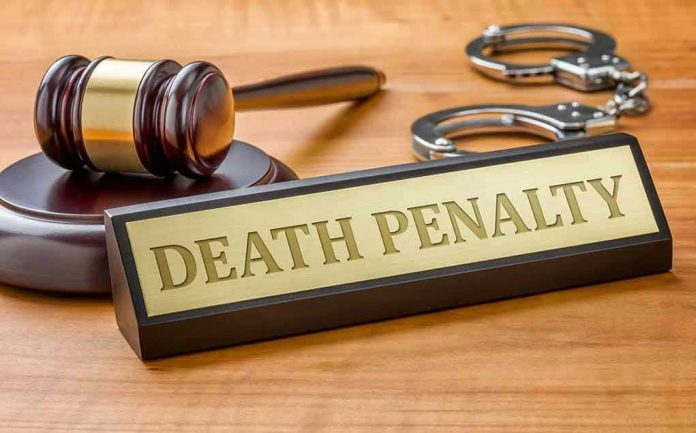
In a state where executions once stalled for years, the looming spectacle of a firing squad has forced South Carolina—and the nation—into a confrontation with the brutal mechanics of capital punishment.
Story Snapshot
- South Carolina schedules its first execution by firing squad, a method not used in the state’s modern history
- Legal, ethical, and logistical battles over execution methods ignite fierce national debate
- Drug shortages for lethal injection drive states to consider rare and controversial alternatives
- The outcome could reshape death penalty policies and legal precedents across America
South Carolina Revives the Firing Squad: A Historic and Controversial Turn
Richard Bernard Moore, convicted of murder in 1999, now faces a fate few imagined possible in twenty-first century America: a death sentence carried out by firing squad. South Carolina, unable to procure lethal injection drugs for more than a decade, amended its law in 2021, making the firing squad and the electric chair options for executions. This move breaks from decades of practice and thrusts the state into a rare position among its peers. The scheduled execution—if carried out—will be the first in state history by this method and only the third in the U.S. since the 1970s. Such a shift is not about nostalgia or tradition, but a direct response to the practical roadblocks and legal entanglements that now define the American death penalty system.
The drama began not in courtrooms but in the supply chains of pharmaceutical companies, whose refusal to provide drugs for executions paralyzed South Carolina’s ability to carry out death sentences. Inmates like Moore challenged the alternatives in court, arguing that methods such as the firing squad and electric chair violate constitutional protections against cruel and unusual punishment. While the state insists its new protocols are humane and ready, legal teams and advocacy groups warn that such measures risk turning punishment into public spectacle and reopening deep wounds for victims’ families and the condemned alike.
Legal and Ethical Crossroads: The Collision of Law, Morality, and Public Opinion
South Carolina’s decision did not occur in a vacuum. The national landscape around capital punishment has shifted dramatically in recent years. Several states have abolished the death penalty or instituted moratoriums, and public support has steadily declined, especially for methods perceived as outdated or barbaric. Yet, in South Carolina, frustration over delayed justice and legislative determination to fulfill court-ordered sentences collided, resulting in the extraordinary step of reviving the firing squad. Moore’s legal team, supported by various advocacy organizations, continues to fight in state and federal courts, challenging not only the chosen method but the broader legitimacy of the death penalty in a modern democracy.
Legal scholars and constitutional experts dissect these developments with urgency, noting that the Eighth Amendment’s prohibition on cruel and unusual punishment is being tested in real time. Proponents argue that the firing squad, while dramatic, is swift and less prone to mishap than lethal injection, which has been plagued by botched procedures and prolonged suffering. Opponents, including groups like the American Bar Association and Amnesty International, condemn the move as a step backward, warning that such actions risk further eroding public confidence in the justice system and exposing the state to years of costly litigation.
Unresolved Questions and National Implications: The Ripple Effect of a Single Execution
The immediate impact of South Carolina’s firing squad decision is felt most acutely by Moore, his family, and the family of his victim. Yet the reverberations extend much further. State officials, corrections officers, and legislators find themselves both enforcing and defending a policy that could set precedent for other states grappling with similar challenges. The broader community, meanwhile, watches with a mixture of fascination and discomfort, as the story forces a reckoning with the realities—and contradictions—of capital punishment in America.
As courts continue to weigh legal appeals and advocacy groups prepare for possible protests, the question remains: will this execution mark a singular episode, or will it trigger a wider reconsideration of how—and whether—the ultimate punishment should be administered? The answer may define not only the future of the death penalty in South Carolina, but also the trajectory of American criminal justice for years to come.
Sources:
Associated Press, “South Carolina Prepares for First Firing Squad Execution,” April 2022-2024
Death Penalty Information Center, “Execution Methods in the United States”
South Carolina Department of Corrections, Official Statements
State Supreme Court of South Carolina, Legal Filings
Pew Research Center, “Public Opinion on the Death Penalty”
American Bar Association, “Capital Punishment in the United States”
Amnesty International, “Death Penalty 2024 Report”




